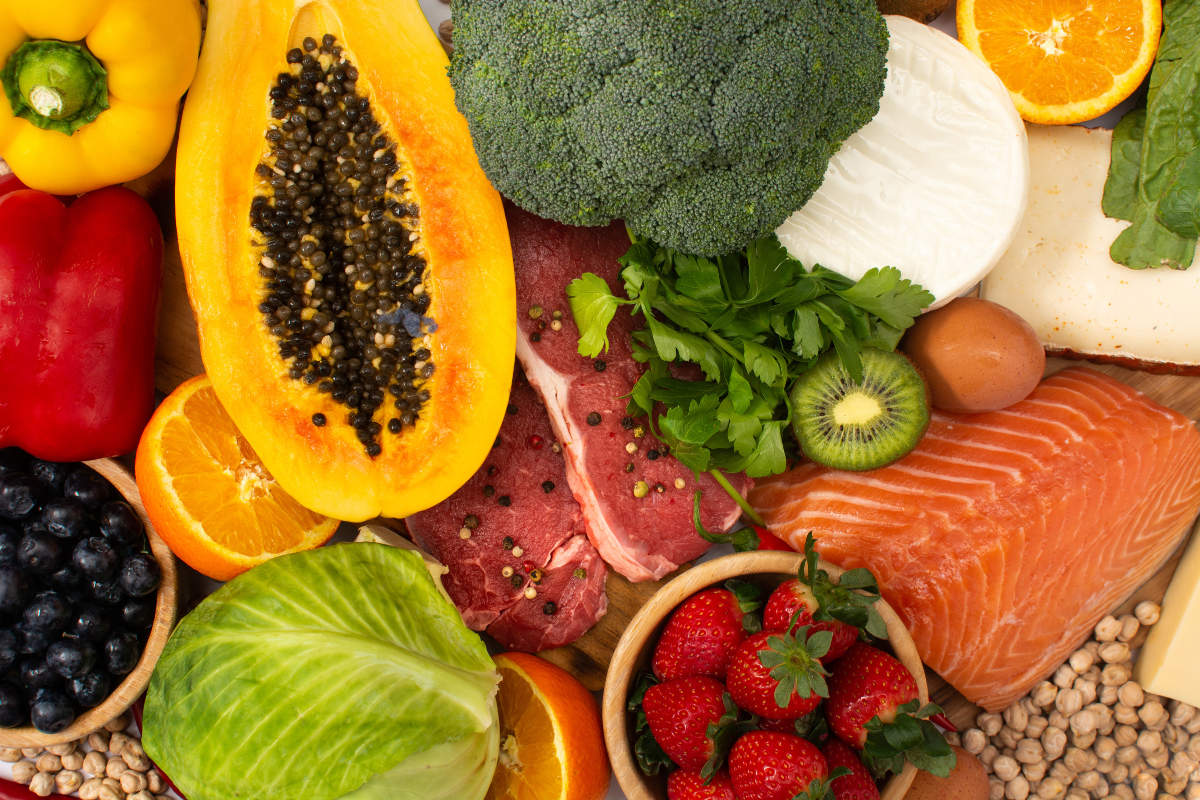Your Cart is Empty
FREE SHIPPING OVER $45 & RETURNLESS REFUNDS

Vitamins and minerals can play a huge part in your overall health, along with certain carbohydrates, proteins, and dietary fats. We all want our bodies to stay healthy and thrive. We can accomplish this by including more of these essential vitamins and minerals in our daily diets:
Also known as retinol, Vitamin A has many functions that include fighting infection, helping your body’s natural defense system, and improving your low-light vision. Vitamin A deficiency can cause vision loss and lead to complications with your skin, tissues, and immune system.
The daily recommended amount of Vitamin A is 700 - 900 mcg RAE. Foods that are good sources of Vitamin A include leafy green vegetables, carrots, sweet potatoes, bell peppers, and mangos.
Widely associated with your bones and teeth, this mineral also plays a role in assisting your muscles, regulating your heart rate, improving nerve function, and even helping blood clot. Not getting enough calcium can cause dental changes, fragile bones, and an increased risk of falling.
On average, adults need 1,000 mg of calcium per day which can be found in most dairy products, soybeans, leafy vegetables, salmon, and figs.
There are 8 different essential B vitamins. Each one can convert carbohydrates, fats, and proteins into energy. They also help with cell development, function, and growth and have a direct impact on brain function.
Try including more Vitamin B in your diet to maintain good health and well-being. On average, adults need 1.2 - 1.4 mg of Vitamin B per day. Good sources of Vitamin B include broccoli, brussels sprouts, chickpeas, kidney beans, and leafy green vegetables.
Magnesium plays a crucial role in maintaining healthy nerve functions, muscle support, and energy production. It's often used as a natural muscle relaxant to help relieve tight or cramping muscles.
If you're looking for ways to add more magnesium into your diet, try incorporating pumpkin seeds, almonds, cashews, or peanuts into your foods. Many leafy greens and beans are rich in magnesium too.
The daily recommended amount of Magnesium is 310 - 320 mg for women and 400 - 420 mg for men.
Known also as ascorbic acid, Vitamin C is an antioxidant that can help boost your immune system and protect your cells from damage. It can also aid in healing wounds and promoting collagen production which can help increase bone density.
The daily recommended amount is 75 - 90 mg. Various fruits and vegetables are the best sources of Vitamin C.
Iron is essential for growth and development of the body and building up red blood cells. Red blood cells contain a protein called hemoglobin which helps transfer oxygen in your blood from your lungs to your tissues.
If you're a vegetarian, you need to consume almost double the amount of iron than someone who is not a vegetarian because plant-based foods contain less iron than animal products. Some iron-rich foods include red meat, seafood, beans, dark green leafy vegetables, and dried fruits.
The amount of iron you need depends on your age and gender:
Men over 18 need 8.7 mg/day.
Women 18 - 50 need 14.8 mg/day.
Women over 50 need 8.7 mg/day.
Vitamin D helps your body absorb and retain calcium that you get from consuming dairy products, leafy vegetables, salmon, etc. Vitamin D also works to control infections and reduce inflammation in the body.
The best way to get more Vitamin D is through spending time outside in the sun. The sun is actually the best source of Vitamin D you can get. If you're looking for foods that contain Vitamin D, look for fatty fish or seafood.
Zinc is a mineral that the body only needs in small amounts. Zinc works to help your immune system, improve metabolism function, heal damaged tissue, and build proteins.
The daily recommended amount of zinc is 8 mg for women and 11 mg for men. Good sources of zinc come from beans, nuts, crab, whole grains, and dairy products.
**Talk to your doctor before taking vitamins, additional supplements, or increasing the amount of vitamins and minerals you already take.
Let us know what topics you're interested in, and we'll do our best to include them in future blogs! Email us at info@toneshealth.com